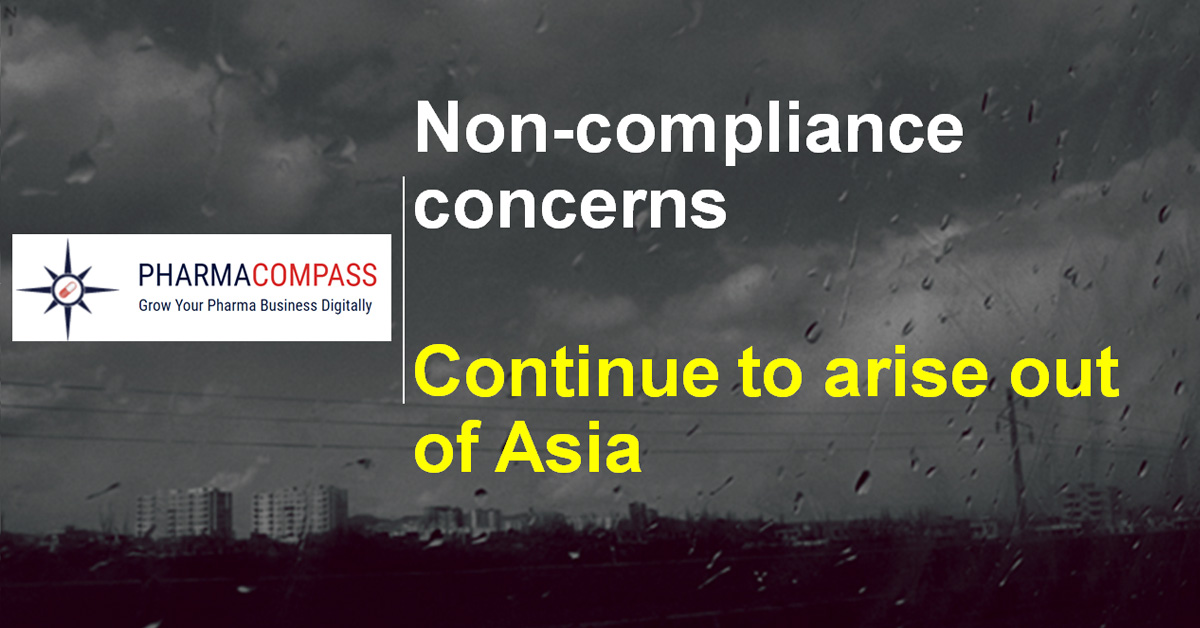
By PharmaCompass
2018-05-17
Impressions: 2989
Two weeks after our compliance re-cap talked of data-integrity concerns re-emerging out of India and China, we bring you another recap with more compliance concerns arising out of Asia.
Reine Lifescience, an API manufacturer in India that was placed on US Food and Drug Administration’s import alert list on March 30, 2018, received a warning letter from the agency.
The warning letter highlights the concerns that compelled the FDA from stopping imports from the company into the United States. During the inspection, the FDA investigator observed analytical data in a folder named ‘PD Trial’. While the folder was normally intended for product development, it contained batch data for APIs, and the results appeared to differ significantly from recorded test results.
The FDA investigator also found the audit trail feature to be disabled on instruments used for quality control testing of APIs, including the high performance liquid chromatography system. The analytical systems lacked controls which prevented users from deleting or altering electronic data.
Reine Lifescience released and shipped APIs to the US market that were manufactured using multi-product equipment before completing equipment cleaning validation.
cGMP non-compliance at Taiwan’s Savior Lifetec
In Taiwan, UK’s Medicines and Healthcare products Regulatory Agency (MHRA) issued a “Statement of Non-Compliance with GMP” to sterile antibiotic manufacturer Savior Lifetec Corporation.
The inspection identified a critical deficiency pertaining to the aseptic processing of the antibiotic Meropenem and Meropenem/Sodium Carbonate blend. The deficiency pertained to lack of technical knowledge regarding sterile processing.
As with other finished drug manufacturers, the MHRA issued a “restricted GMP certificate to permit continued manufacture and testing of medicinal products considered to be non-critical to public health and for critical products which are needed to ensure continuity of supply”.
FDA’s warning letter to India’s Goran Pharma
The USFDA also issued a warning letter to finished pharmaceuticals manufacturer Goran Pharma Private Limited in India post an inspection performed in November 2017. The FDA cited the firm for failing to test incoming components used in manufacturing drug products.
The firm was releasing components used in drug product manufacturing based on certificates of analysis (COA) from suppliers without establishing the reliability of the suppliers’ analyses.
The firm did not test each lot of glycerin used to determine whether diethylene glycol (DEG) or ethylene glycol (EG) were present or not. DEG contamination in pharmaceuticals has resulted in various lethal poisoning incidents in humans worldwide.
The firm’s quality unit was also found to have released batches without reviewing all production and control records. Moreover, it lacked an air handling system along with the necessary controls to monitor temperature and humidity in the manufacturing (e.g. filling, packaging) and warehouse areas.
The firm confirmed that its drug products may be exposed to temperatures over 30°C (86°F) and that temperatures in the facility could reach 50°C (122°F) during hot weather months.
The warning letter states “it is unacceptable to manufacture drug products without an air handling system that has control over temperature, humidity, and air cleanliness.”
Our view
We are witnessing a fresh spate of compliance concerns arising out of Asia, demonstrating a continued disconnect between the expectations of regulators and the quality systems being adopted by lesser known organizations, which are not prone to continuous inspection scrutiny.
As the regulators increase their expectations, the gap between the compliant and non-compliant organizations will continue to widen.
Over the years, PharmaCompass’ compilations have shown a decrease in companies willing to pay the USFDA’s Generic Drug User Act (GDUFA) fees for their facilities in the United States. This is a clear indicator that the trend of widening regulatory gap will not reverse anytime soon.The PharmaCompass Newsletter – Sign Up, Stay Ahead
Feedback, help us to improve. Click here
Image Credit : Weeping by seyed mostafa zamani is licensed under CC BY 2.0 // Modification: the PharmaCompass logo and Non-compliance concerns Continue to arise out of Asia was added to the original image.
“ The article is based on the information available in public and which the author believes to be true. The author is not disseminating any information, which the author believes or knows, is confidential or in conflict with the privacy of any person. The views expressed or information supplied through this article is mere opinion and observation of the author. The author does not intend to defame, insult or, cause loss or damage to anyone, in any manner, through this article.”








